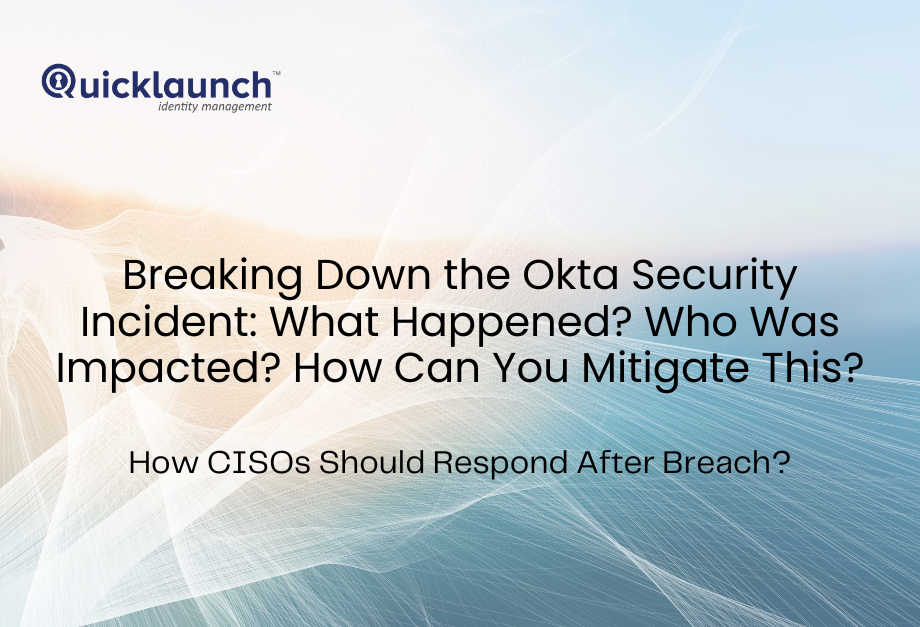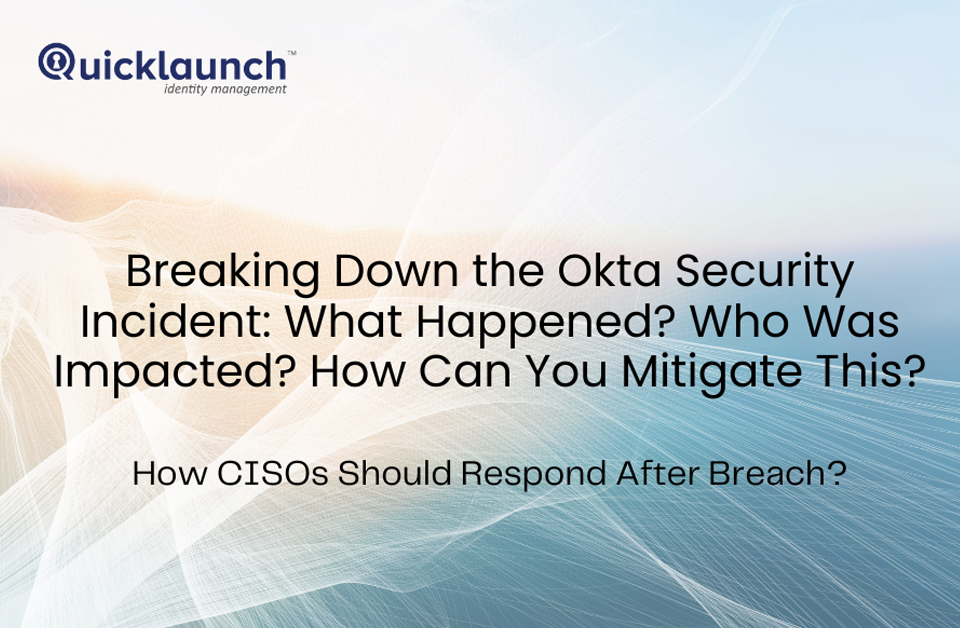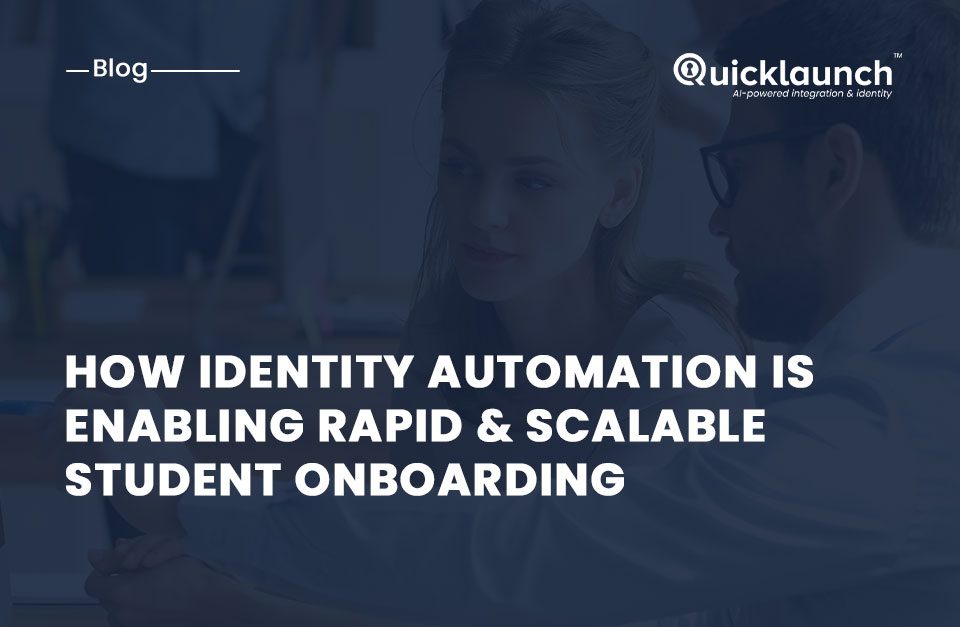Breaking Down the Okta Security Incident: What Happened? Who Was Impacted? How Can You Mitigate This?

The Cost of Repetitive Manual Tasks: Optimizing IT Efficiency
November 26, 2024
Streamlining User Access: A Guide to Automated User Provisioning/ Deprovisioning
January 15, 2025
Okta, a leading identity and access management provider, has experienced a security incident impacting its customer support system. The breach, affecting a larger percentage of customers than initially estimated, has raised concerns about the exposure of sensitive information.
Today, we're diving into the Okta security saga to not just dissect the incident but also arm you with a battle-ready action plan.
Reported by Information Week, Okta, a prominent provider of identity management solutions with an impressive clientele that includes FedEx, Zoom, Bain & Company, HPE, Ally Financial, and others, confronted a notable security challenge. Initially, Okta disclosed a breach in its customer support system, impacting just 1% of its customers, with prominent clients like Caesars Entertainment and MGM Resorts affected by a social engineering attack. However, a subsequent blog post revealed that the breach's impact was more widespread than initially acknowledged. The attacker executed an automated query, exposing names and email addresses of all Okta customer support system users, highlighting the dynamic nature of the security threat.
Okta's Chief Security Officer, David Bradbury, clarified that while there is currently no direct evidence of the stolen information being actively exploited, there is a potential risk that threat actors may employ this data for targeted phishing or social engineering attacks against Okta customers.
Despite Okta's robust security measures, the breach underscores the evolving threat landscape.
How CISOs Should Respond After Breach
According to Forrester's Maxim, companies must bolster their security measures and maintain a vigilant stance following a breach. "Implementing two-factor authentication for users who haven't adopted it is crucial," he emphasizes. Furthermore, Maxim suggests applying pressure on vendors to ensure transparent breach disclosure and staying informed about available patches or fixes.
What should be your Action Plan to mitigate these risks:
- Avoid using user accounts as admin accounts, as observed in Okta's practices, to mitigate potential incidents.
- Monitor Your Accounts: Stay vigilant for suspicious activity and report any anomalies immediately.
- Exercise Phishing Awareness: Be cautious with unexpected emails and avoid clicking on unfamiliar links or downloading attachments.
- Update Passwords or be Passwordless: As a precautionary measure, we recommend updating your passwords, not only on Okta but across other platforms as well or just go passwordless.
- Adopt MFA Features: Boost your account security by enabling Multi-Factor Authentication (MFA) features—an extra layer of defense against unauthorized access.
- Do not use SMS as MFA as SMS is not a true second factor and is easily compromised.
OKTA Alternative
QuickLaunch sets itself apart by focusing on enhancing end-user and super-admin security through robust architectural choices QuickLaunch has made in the core of our archecture. By offering advanced identity and access management solutions, including Multi-Factor Authentication (MFA), Single Sign-On (SSO), and robust credential management, QuickLaunch is in a unque position by adding extra build in security considerations for Privileged accounts.
Schedule a call to discover more about QuickLaunch's capabilities.




